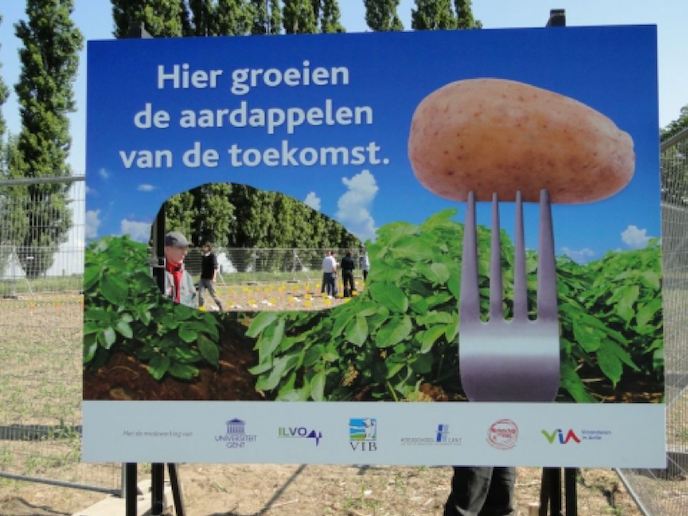How the humble potato inspired radical new thinking on agrifood research and innovation
The HealingFromEnclosure project aimed to gain a more thorough understanding of the broader cultural, economic, disciplinary, socio-technical and socio-ecological contexts that shape, and are shaped, by the agrifood sciences and innovation in Belgium. Whilst coordinated from the UK’s University of Sussex, it was Belgium that was the setting for the project, led by Marie Skłodowska-Curie fellow Barbara Van Dyck. “Despite much evidence to the contrary, conventional ideas about science and innovation commonly reduce to a rather simple picture of linear inputs and outputs,” comments Van Dyck. “My project contributed to a much wider collective effort seeking to open up this ‘black box’ view of research and technology.”
A focus on Flanders
With a focus on the politics of field trials with genetically modified trees, potatoes and corn in Belgium (specifically Flanders, the Dutch-speaking northern region), the project lays bare the fundamentally undemocratic nature of mainstream innovation processes. Flanders was the perfect case study as the Flemish regional government is particularly keen to boost incentives for R&D activities. It has established an extensive research infrastructure to encourage collaboration between industry, academic and government institutions. But it hasn’t all been plain sailing. “In relation to food and agriculture, Belgian civil society organisations challenge the political choice to privilege particular kinds of biotechnology-based innovation over other – wider – forms of innovation,” says Van Dyck. In 2011, a field trial of genetically modified potatoes caused a national scandal. Whilst publicised as the ‘potatoes of the future’ by the Flemish Institute of Biotechnology and its partners, a civil society action to replace the modified potatoes with organic ones led to fierce parliamentary debates and court cases.
Working towards an ‘innovation democracy’
“The sequence of events surrounding the potato field trial serves to make this an excellent case study. It highlights the tensions between those seeking to reduce food and agricultural innovation to narrowly technical options, and those who aim to ‘open up’ crucial political questions about technology and help build ‘innovation democracies’,” Van Dyck explains. But how can an ‘innovation democracy’ be realised? One possible answer explored by Van Dyck is the concept of ‘political agroecology’. This would act to facilitate conversations between different knowledge sources and build a common ground between disciplines and practices. “Building a common ground entails a rebalancing of emphasis on particular narrow forms of expertise to a situation where more diverse voices can be heard,” says Van Dyck. “To demonstrate this, we experimented with political spaces. Here, more collective interests can be heard and mutual bonds between researchers and concerned people from different backgrounds can be created.” One example of such an initiative was public biotechnology conversations and a lecture. These were held as stepping stones towards more collective thought and action around food system knowledge production. Van Dyck hopes that her work will contribute to the positive development of research and technology infrastructures that support more balanced and cooperative engagement with society. She hopes farmers’ organisations, civil society movements and researchers from a wide range of disciplines can all be involved. “Only in this way can sustainable food systems be built that value reciprocity, respect and responsibility.”
Keywords
HealingFromEnclosure, potato, agrifood, food security, food safety, field trial, genetically modified potatoes, political agroecology, innovation democracy



